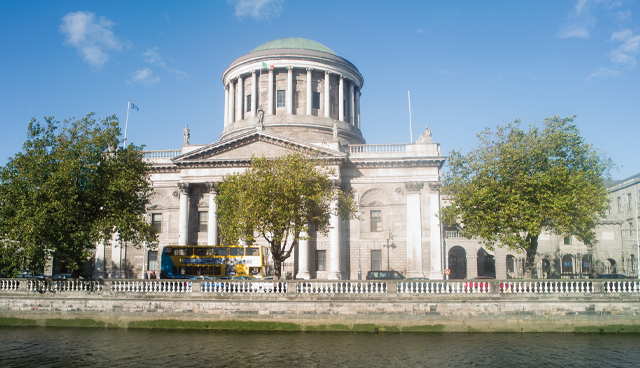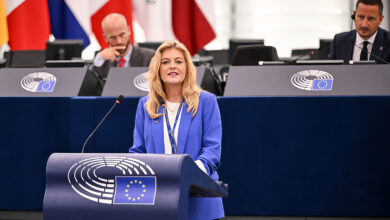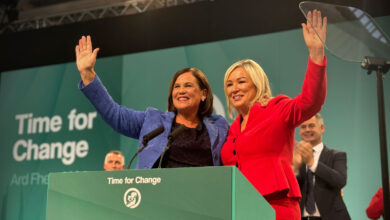The implications of the Kerins case

The public where perplexed when former Football Association of Ireland CEO John Delaney was questioned by an Oireachtas committee but refused to offer any answers other than his opening statement. The Oireachtas Sports Committee’s reluctance, or inability, to press the issue is rooted in the High Court legal action taken against the Public Accounts Committee by former Rehab Group CEO Angela Kerins.
In May, the Supreme Court reached the decision that the PAC had acted unlawfully toward Kerins, whose case will now revert to the High Court in order to determine whether or not she is awarded damages. The Supreme Court’s ruling is what affects the manner in which Oireachtas committees can conduct their business. The court found that the PAC’s conduct when questioning Kerins had condoned the “significant departure” by at least three of its members from their terms of invitation to Kerins.
The invitation extended to Kerins permitted questioning about her salary and the Rehab Group’s operation of three State-funded schemes, the court found. However, at the meeting in February 2014, Kerins was questioned about salaries of other Rehab officials, commercial relationships between Rehab and her predecessor Frank Flannery, a commercial relationship between Rehab and Complete Eco Solutions, as well as the registration year of her company car. The court found that these lines of questioning had been “well outside” the terms of Kerins’s invitation. Comments made by then PAC chair John McGuinness TD during the hearing supported the court’s finding that the committee had acted in unison in violating the terms of invitation.
The court found that the PAC had invited Kerins to attend on one basis before proceeding on a “significantly different” basis once she attended. It ruled that Kerins was entitled to a declaration to that effect by the Dáil itself rather than by individual PAC members.
The judgement declared that “by conducting a public hearing in a manner which was significantly outside its terms of reference and which also departed significantly from the terms of an invitation by virtue of which a citizen was requested to attend, the Public Accounts Committee of Dáil Éireann acted unlawfully”. The PAC had sought to defend itself by arguing that it was entitled to ask question concerning any State-funded business.
In April, as the questioning of Delaney descended into a farcical back and forth of question and non-answer, the status of the Kerins case hamstrung the Oireachtas Sports Committee’s ability to further press the matter. At that point, the Supreme Court’s full judgement had not been made, although it had found in February that the PAC was guilty of “acting outside its terms of reference” towards Kerins.
By finding that the PAC had acted outside its remit, the court ruled that “it would not be a breach of the separation of powers for the Court to declare the actions of the PAC unlawful”, meaning that the privilege under which operations of the Houses of the Oireachtas fall outside of the Irish legal system’s powers did not apply after such behaviour.
At the time of the ruling, it was feared that the effect would be more a stifling and overhanging feeling rather than any direct legal effect. Delaney’s innovation of the case when he read his statement and asked the committee to respect his wish not to comment on the €100,000 cheque given to the FAI by him or on his time as FAI CEO “in light of the recent Supreme Court ruling in the Kerins case” confirmed those fears.
The only remit we have legally in terms of funding here is funding that comes from Sport Ireland to the organisation — that is the law — and their accountability to that. On other funding, notwithstanding the importance of the Deputy’s questions, they do not have to answer if they do not wish. That is a fact.
— Oireachtas Sports Committee chair Fergus O’Dowd TD
The Oireachtas Sports Committee’s remit was a narrow one — strictly related to State funding of the FAI through Sport Ireland — and thus Delaney’s mention of the Kerins case made it clear that the legal advice he had received was that his personal conduct as CEO of the FAI for 15 years was outside the committee’s remit. Committee chair Fergus O’Dowd TD explained during one of its sittings: “The only remit we have legally in terms of funding here is funding that comes from Sport Ireland to the organisation — that is the law — and their accountability to that. On other funding, notwithstanding the importance of the Deputy’s [Sinn Féin TD Jonathan O’Brien] questions, they do not have to answer if they do not wish. That is a fact.”
O’Brien’s questioning of how the FAI had found itself short of funds led him to ask the former CEO whether UEFA funding was deposited into the FAI’s main bank account. This required further explanation from O’Dowd: “We agreed that there was a remit of the committee and we have to stick to that. There are certain questions which were read out at the very beginning – I appreciate that the Deputy was not here – that could not be asked legally and other ones that could.” When asked if the bank account question was one which could not be asked, O’Dowd replied: “I am advising the Deputy, as Chair, just to be careful what he is saying here in terms of the legal issues, of which he may not be aware, and the Supreme Court case.”
He continued: “I want to make very clear to the Deputy and to everybody that we are all on the same side here in getting the facts. We have to act within the law, whether we like it or not. I do not like having to say to the Deputy that he has to be careful about a question but if I do not do that, I am in breach of my duty. The Deputy may not like to hear this but the fact is that the Supreme Court has commented on the role of the chairman in the Kerins case and I have to have due regard to all of the advices I have got. There is no big deal here.”
The Supreme Court’s ruling had found that it was the specific responsibility of the chair of any Oireachtas committee to ensure that the proceedings were done lawfully. Kerins, Delaney, and anyone else attending an Oireachtas committee who is not a member of the Oireachtas, are private citizens, and their involvement with State funding does not mean that they can be compelled to attend or answer any question they do not wish to answer.
Maria Bailey, Fine Gael TD and chair of the all-party housing committee until her recent resignation, said that the Kerins ruling had not affected the standing orders of committees, but that it had made it clear that committees had to stay within their remits. The Kerins ruling, and the feeling created by it, has led to questions about the expansion of committee powers and the rules surrounding witness compellability. As it stands, only official inquiries may compel witnesses to testify.





